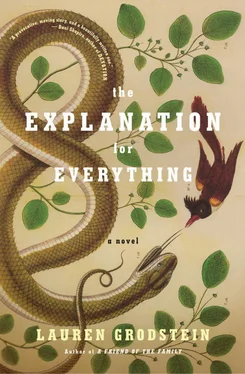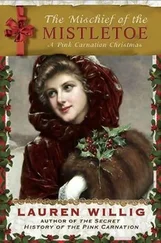And then, in a case that has been well-documented (a case that led to my being placed on academic leave from Princeton, where I had been a fixture of the biology department for more than thirty years), Anita was killed by a madman.
Who that madman was is a question I still believe is up for debate.
This book is my own short discussion of death. It is about the death of a young girl, and the death of an idea, and, I suppose, my own death, and yours.
I have spent my entire career thinking about the scale of time. I told myself I could appreciate it, what a billion years might mean, but I think I was lying to myself. I don’t think a human being has the capacity to understand a billion years, and I don’t think human beings ever come to terms with the fact that yes, they too will die. Even suicides don’t really believe it. They know they don’t want to live anymore, but that’s not quite the same thing.
Before Anita died, she found herself a convert to Christianity, and decided that she would no longer pursue her research into the viral origins of DNA. People often speak of deathbed conversions, and there are few of us, I imagine, who, in our darkest times, don’t want to reach for supernatural comfort. What is about to happen to us is so beyond our understanding that we need to be comforted by something else that is beyond our understanding. Death—our own, or others’—is the only thing powerful enough to allow adults to believe in what is otherwise impossible to believe. All religion is a response to the undeniable: that there is death, and that we will cease to be. That the people we love will also cease to be here anymore. This is the story of Jesus, is it not? He died, but didn’t really die? And isn’t this what people say when they talk about giving “meaning” to life? Not, why was I here at all but why can’t I be here forever?
Anita’s narrative is that she died after she turned to God, but I wonder if she turned to God because she knew that soon she would die?
Andy closed the manuscript. He still missed Rosenblum dreadfully but this all felt like nonsense to him, self-indulgent nonsense. ( Who was this madman who killed Anita? Come on, Rosenblum, cut the shit.) He put the manuscript on top of a pile of papers on a chair, turned to the NSF grant it seemed more and more likely he would never finish writing. He added some language, deleted some language. Changed around a few numbers. His computer froze, shut down without allowing him to save his files. He would have been angry about the work he lost except he hadn’t been doing any real work. Rosenblum’s manuscript on the chair was like having Rosenblum himself on the chair. He didn’t want to fight with Rosenblum right now. His excitement over having Rosenblum back in his life made him feel oddly vulnerable to whatever Rosenblum might say. He would wrestle with that later.
For the moment he would visit his befuddling mice.
The forty-two C56BL/6s were climbing along the bars of their cages, scratching madly; he checked the log, and the tech hadn’t come around since yesterday morning. Well, Andy knew how to clean out some mouse cages. It wasn’t so long ago he’d been in charge of this kind of messy work. He put on some gloves, put his small slippery mice in a plastic box, cage by cage, emptied out their shavings, refreshed their food. Eight cages of six mice each, stacked on top of each other in the vivarium. The six DBA/2s in cage 4 were scheduled to be bred soon; he had to make a note to the tech. On the margin of the note, he scribbled, then crossed out, “goddammit Rosenblum!!!”
Cautiously, Andy checked the levels of ethanol to see if his C56BL/6s were drinking as much as they were supposed to. Please, he thought, bending down to look at the measures; come on, you little alkies, drink yourselves blind. But no: once again, his little black mice had drunk only in moderation, as though they were at a cocktail mixer, not a frat party. What was wrong with these rodents? Didn’t they want him to get his grant? Why were they conspiring against him?
“Professor?”
Lionel Shell, whom he hadn’t seen in months. He was grim-looking, unshaven, circles under the eyes. Much like Andy felt. He was wearing a sweater-vest with a T-shirt under it and a small rip near the hem.
Andy put down his notebook on top of one of the little mouse cages. One of the rodents gave him what seemed to be a dirty look.
“Can I help you, Lionel?”
“What are you doing down here?” Lionel asked. “Am I interrupting?”
“Just checking some numbers,” Andy said. “Maybe cleaning out a cage or two.”
Lionel stuck his hands deep in his pockets. The laboratory space was dingy, pale green, windowless. The walls were lined with plastic equipment, some of which hadn’t been used in generations; there were computers, microscopes, and boxes of slides along each wall. In the corner of the room stood the small wood and metal guillotine where a few times a month Andy would behead his mice, and next to it was the machine that let him make prosciutto-thin slices of their brains. Lionel went over to the guillotine. It had brown splotches on it, even though Andy did his best to keep it clean.
“Lionel? You here for a reason?” Andy felt itchy, wanted a fight.
The boy fingered the edge of the guillotine for a moment. “Can I help you clean the cages?”
“You want to?” Andy said, hoping Lionel hadn’t come here to finally lose his mind. “Why?”
“I just feel like being useful,” Lionel said. He met Andy’s quizzical gaze. “It’s the least I can do.”
So they went from cage to cage, refreshing the pellets and the water, taking their time. He wanted to concentrate on something useful; he also wanted to get Rosenblum out of his head. He hated the blanket way that Rosenblum equated religion with fear of death—it was just like him to be so reductive. Surely the world’s great religious traditions were about more than staving off the fear of death. They were about teaching morality, they were about separating right from wrong, they were about providing signposts on how to live in a complicated world.
Oh, but he could hear Rosenblum in his ear: The only thing that motivates us is the preservation of our genes. Religion itself is a response to that need to preserve. And there are clearly no lengths to which our DNA will not go to preserve itself—building a cathedral is nothing compared to outwitting several ice ages.
Come on, Andy, didn’t I teach you anything?
“Lionel, I’ve been thinking a lot about God lately,” he said. He felt a need to confess this, or to change the subject from the fight he was having with Rosenblum in his head.
“Have you?” Lionel didn’t seem as interested as Andy would have liked.
“Well, I’ve been working with Melissa Potter on that project, and she’s given me some books which are quite eye-opening.”
Lionel looked confused.
“Remember? Melissa Potter? You met her at the Campus Crusade, sent her my way—”
“I remember,” Lionel said. “I just don’t go to the Crusade much anymore.”
“Why not?”
“I just—I’m not sure they matter to me anymore, or something. It’s hard to say.” The boy was quiet. He was looking with spooky intensity toward the guillotine.
“Lionel?”
“I’ve been rereading some of the books you assigned. The Blind Watchmaker .”
“That’s a good one.”
“He’s very convincing, that Dawkins. I also read Rosenblum’s book Religion’s Dangerous Lie. ”
“Lionel, come on, you don’t have to read that stuff anymore.” In their cages, the mice were happily burrowing into their fresh shavings.
“It’s really depressing.”
“It’s not supposed to be,” Andy said. “It’s just supposed to be provocative. Eye-opening.”
Читать дальше












